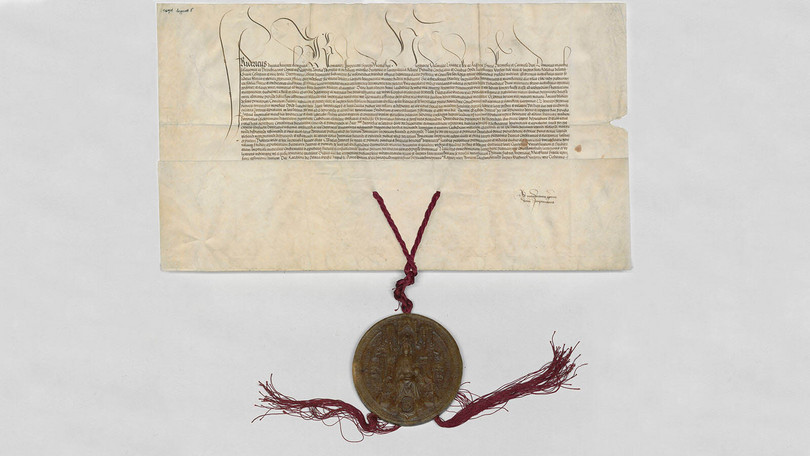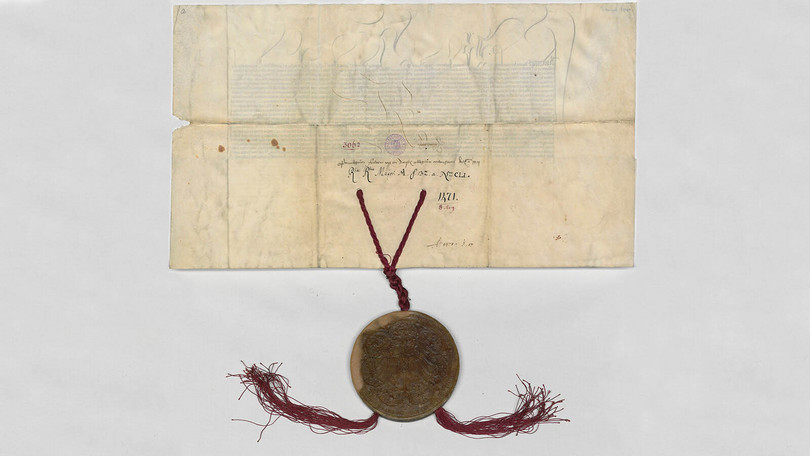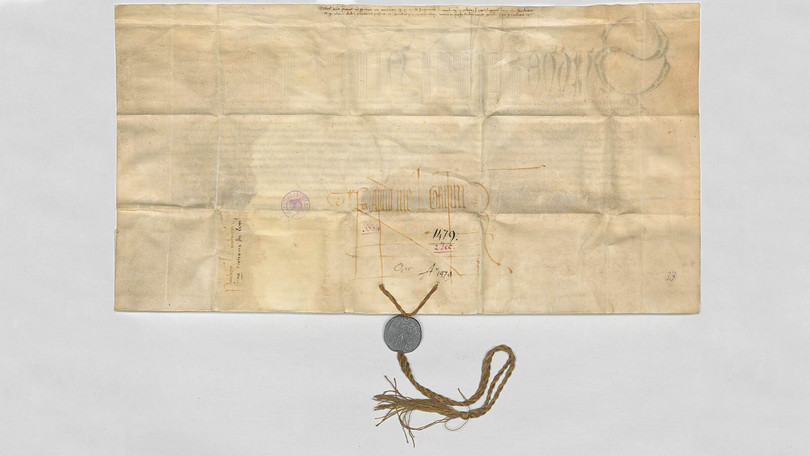Studies (Including State Examination)
Your Path to the State Examination at LLS – Studying Law in a New Way!
For the first time in Germany, students at Leuphana Law School can complete a fully Bologna-compliant law degree program. The program is designed to last ten semesters and aims for students to take the Erste Prüfung (First State Examination in Law) at the Lower Saxony State Judicial Examination Office (Landesjustizprüfungsamt Niedersachsen) at the end of their studies. Along the way, students earn a Bachelor of Laws (LL.B.) and a Master of Laws (LL.M.). As both programs are fully integrated into the European Credit Transfer System (ECTS), studying law at Leuphana Law School is not only interdisciplinary and flexible but also facilitates permeability between different study programs at both national and European levels.
Lüneburg – The Ideal Place to Study
The medieval Hanseatic city of Lüneburg, as part of the Hamburg metropolitan region, offers an excellent environment for legal studies. Students benefit from the Study Counselling Service, the Law Student Association (Fachschaft Jura), and numerous student initiatives. Additionally, research-based learning is emphasized (e.g., through moot courts and legislative workshops), which is effectively implemented in Lüneburg’s small-group learning approach. The modern legal library at Leuphana is an ideal place for study groups to deepen their knowledge. Leuphana University’s architecturally unique, modern, and green campus, along with a broad range of sports and recreational activities, creates an outstanding academic environment. Practical legal experience is close at hand: In addition to Leuphana University, Lüneburg hosts several courts, including the Lower Saxony Higher Administrative Court (Niedersächsisches Oberverwaltungsgericht). Interestingly, Lüneburg was granted the right to establish a Hohe Rechtsschule (High Law School) as early as 1471 by Emperor Frederick III. The Leuphana Law School continues this tradition in a way that is unique in Germany.
Das Jurastudium in der Gesamtübersicht
In the first six semesters of the Major Law, culminating in the LL.B. degree, students receive a comprehensive, interdisciplinary legal education and complete the intermediate examination (Zwischenprüfung). The following four semesters of the Master Rechtswissenschaft (Law), leading to the LL.M., include the completion of the Große Scheine (major certificates) in civil law, public law, and criminal law, as well as the focus area studies (Schwerpunktbereichsstudium), which conclude with the university focus area examination (Schwerpunktbereichsprüfung), the first component of the Erste Prüfung (First State Examination in Law). By the end of the LL.B. and LL.M. programs, students fulfill all the requirements to register for the compulsory state law examination (Staatliche Pflichtfachprüfung), the second component of the Erste Prüfung (Erstes Juristisches Staatsexamen), at the Lower Saxony State Judicial Examination Office (Landesjustizprüfungsamt Niedersachsen). The final two semesters are dedicated to intensive university-based exam preparation, including a practice exam course (Klausurenkurs), which prepares students for the written exams of the Erste Prüfung (First State Examination in Law). This makes enrolling in an expensive private exam preparation course unnecessary.
Another distinctive feature of studying law at Leuphana University Lüneburg is the broad interdisciplinary additional education. The LL.B. program at Leuphana College includes a primary field of study in law (Major Rechtswissenschaft), a subsidiary subject (Minor), and a complementary studies program (Komplementärstudium). The selection of minor subjects is extensive, including options such as sustainability science, business law, political science, social media and information systems, and psychology, among others. Some minor subjects at Leuphana College are also offered in English. The complementary studies program allows students to develop cross-disciplinary skills while deepening their legal expertise through moot courts or foundational subjects such as legal philosophy, sociology of law, or law and economics.
At Leuphana University Lüneburg, students benefit from unique study conditions. Instead of overcrowded lecture halls, they study in small, highly motivated groups, allowing for flexible learning and continuous exchange with peers.
- Flexibility through the integration of legal studies into the Bologna system, offering a Bachelor's degree, a Master's degree, and preparation for the Erste Prüfung (First State Examination in Law)
- Interdisciplinarity through the major/minor combination and complementary studies
- University-based exam preparation, including a practice exam course (Klausurenkurs)
- Stress management programs
- Unique study conditions
The law program at Leuphana enables graduates to meet the entry requirements for the “classic” legal professions, such as:
- Judge
- Prosecutor
- Lawyer
- Notary (depending on the federal state, an additional three-year traineeship as a notary assessor is required)
Beyond these traditional legal careers, students also have numerous opportunities with an LL.B. and/or LL.M. degree, even without completing both state examinations. For several years now, law firms and companies have increasingly sought graduates who have not followed the “classic” legal career path but possess legal expertise combined with additional competencies in other fields. Students at Leuphana University Lüneburg acquire precisely these interdisciplinary skills through their law studies. Furthermore, integrating the law program into the Bologna system opens additional career paths, such as entry into the German diplomatic service or working in international organizations.
Examples of career paths with an LL.B. and/or LL.M. degree include:
- Consulting (LL.B./LL.M.)
- International organizations (LL.B./LL.M.)
- Public sector/ministries (LL.B./LL.M.)
- Foreign Office/diplomatic service (LL.M.)
- Academic careers (LL.M.)
Application to Leuphana College for the Bachelor’s Program in Law (LL.B.)
Applications for the Bachelor’s program in Law (Major Rechtswissenschaft) are submitted to Leuphana College. The Bachelor’s program starts exclusively in the winter semester. Applications open in mid-May.
Application to Leuphana Graduate School for the Master’s Program in Law (LL.M.)
Applications for the Master’s program in Law (LL.M.), which follows the Bachelor’s degree, are submitted to Leuphana Graduate School. The Master’s program starts exclusively in the winter semester. Applications open in April.
University Scholarships:
- Deutschlandstipendium
- Joachim Herz Stiftung (for doctoral studies)
Scholarships from gifted education foundations
International Scholarships:
Answer: Yes, transferring into the Bachelor’s program in Law is possible. You can find further details in the information sheet (in german), from Student Counselling Service, or at the Student Service.
Answer: To be admitted to the Master’s program in Law, you need a Bachelor’s degree with a legal focus (usually an LL.B. with at least 90 ECTS credits in law-related subjects) or an equivalent qualification in a law-related field. Transferring into a higher semester of the Master’s program is not possible. Further details are available from Student Counselling Service or the Student Service.
Answer: Yes, all relevant subjects required for the First State Examination are covered in the law program at Leuphana Law School. The Minor and Complementary Studies at Leuphana University expand and supplement the traditional legal education. They allow students to look beyond the “legal horizon” and acquire additional interdisciplinary and analytical skills. For example, the Minor in Sustainability Sciences can support a specialization in environmental law, while the Minor in Business Administration can facilitate future work in a law firm.
Answer: No. The Zwischenprüfung is a prerequisite for admission to the compulsory state law examination (Staatliche Pflichtfachprüfung) as part of the First State Examination at the Lower Saxony State Judicial Examination Office (Landesjustizprüfungsamt Niedersachsen). The required coursework for the intermediate examination is completed through ongoing assessments in the Bachelor’s program. However, the Zwischenprüfungszeugnis (intermediate examination certificate) is not required to obtain the Bachelor’s degree (LL.B.).
Does completing the law program (Bachelor’s program in Law with a Minor and Complementary Studies, plus the Master’s program in Law) at Leuphana University Lüneburg fulfill all requirements for admission to the compulsory state law examination (Staatliche Pflichtfachprüfung) as part of the First State Examination at the Lower Saxony State Judicial Examination Office (Landesjustizprüfungsamt Niedersachsen)?




